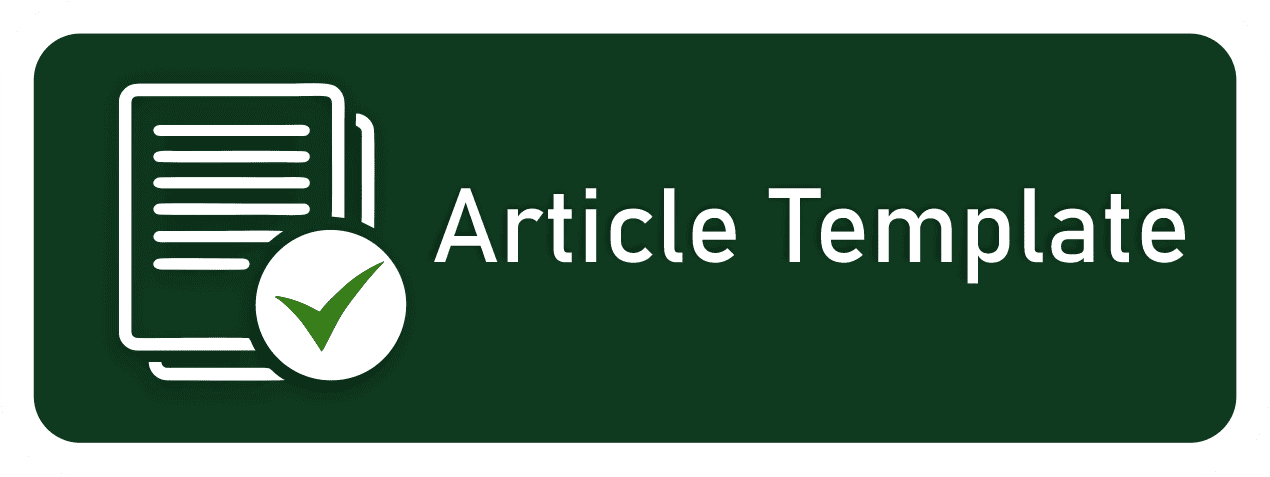Increasing Literacy In Reading The Qur’an Hadith In Class IX Students Through The Application Of The Talaqqi Method At MTsN 1 Kudus
Abstract
The focus of this research is to find out how the talaqqi method can improve students' reading literacy of the Al-Qur'an Hadith at MTs N 1 Kudus class IX. The subjects in this research involved Al-Qur'an Hadith subject teachers and class IX students. The method in this research uses a qualitative descriptive approach and data collection through interviews, observation and documentation. The results of this research can be concluded that the application of the talaqqi method in learning Al-Qur'an Hadith is considered effective in improving students' ability to read the Al-Qur'an. The talaqqi method is very suitable for use in learning the Al-Qur'an. The driving factors in implementing the talaqqi method at MTs N 1 Kudus, include; a) there are teachers who are qualified in their field of recitation, b) there is support from parents and teachers, and c) the conditions in the madrasa are comfortable and very supportive. The inhibiting factors include; a) less effective time management, b) the emergence of a feeling of laziness and lack of focus among students, and c) lack of support from students' parents. Communication between teachers and parents is the solution to this obstacle. It is hoped that this research will provide new knowledge and a deeper understanding regarding the application of the talaqqi method in increasing students' Al-Qur'an reading literacy and provide a basis for developing better talaqqi learning methods for teachers and students.
Keywords
Full Text:
PDFReferences
Amaliah, I. N., Nuroni, E., & Pamungkas, M. I. (2018). Pembelajaran Tahfidz Al-Qur'an Dengan Metode Talaqqi (Studi Kasus Di Madrasah Ibtidaiyah Asih Putera Kota Cimahi). Prosiding Pendidikan Agama Islam, 0, Article 0. https://doi.org/10.29313/.v0i0.12276
Antaranews.com. (2023, Oktober 11). Kemampuan baca tulis Al Quran masyarakat Indonesia tinggi pada 2023. Antara News. https://www.antaranews.com/berita/3768246/kemampuan-baca-tulis-al-quran-masyarakat-indonesia-tinggi-pada-2023
Arti kata metode—Kamus Besar Bahasa Indonesia (KBBI) Online. Diambil 14 April 2024, dari https://kbbi.web.id/metode
Dilla, A. M., & Adiyono, A. (2023). MENGOPTIMALKAN LITERASI ALQURAN: MENGEKSPLORASI STRATEGI PEDAGOGIS DAN FAKTOR-FAKTOR SOSIAL-LINGKUNGAN YANG BERDAMPAK PADA KEMAHIRAN MEMBACA AL-QURAN DI KALANGAN SISWA MADRASAH TSANAWIYAH AL-IHSAN TANAH GROGOT.
Imroatul Chasanah, I. C. & M. Sholehuddin Sulaiman. (2023). Pengaruh Pembelajaran Al-Quran Hadist Terhadap Kemampuan Baca Tulis Qur’an di MTs Darul Ulum Waru. Tsaqafatuna, 5(2), 153–161. https://doi.org/10.54213/tsaqafatuna.v5i2.299
Irma, I. F. (2021). Penguatan Kecerdasan Spiritual Peserta Didik Melalui Pembelajaran Alquran Hadits Di Madrasah Ibtidaiyah. JURNAL ILMIAH INNOVATIVE (Jurnal Pemikiran Dan Penelitian), 8(01), Article 01. https://doi.org/10.53429/innovative.v8i01.171
Istiqomah, R., Anam, N., Rusydi, M., Yaqin, M. A., Jember, I. A.-Q., Jember, I. A.-Q., & Jember, I. A.-Q. (2024). PENERAPAN METODE TALAQQI OLEH TPMQ (TIM PENJAMIN MUTU AL- QURAN) UNTUK MENINGKATKAN KUALITAS BACAAN AL-QURAN SISWA. 3.
Ma’mun, M. A. (2018). Kajian Pembelajaran Baca Tulis Al-Qur’an. Jurnal Pendidikan Islam, 4(1), Article 1. https://doi.org/10.37286/ojs.v4i1.31
Mashud, I. (2018). MENINGKATKAN KEMAMPUAN SETORAN HAFALAN AL-QUR’AN MELALUI METODE TALAQQI PADA SISWA KELAS VIB SEKOLAH DASAR ISLAM YAKMI TAHUN 2018.
Munawwir, Ahmad W. (1997). Al- Munawwir. Jakarta Pustaka Progresif
MTs Negeri 1 Kudus | Sejarah, Visi Dan Misi Madrasah. (2021). Diambil 16 April 2024, dari https://mtsn1kudus.sch.id/post/sejarah,-visi-dan-misi-madrasah
Nurhanifah, N. (2023). URGENSI PENDIDIKAN AL-QUR’AN: KAJIAN PROBLEMATIKA KETIDAKMAMPUAN MEMBACA AL-QUR’AN DAN SOLUSINYA. JUMPER: Journal of Educational Multidisciplinary Research, 2(1), 102–114. https://doi.org/10.56921/jumper.v2i1.73
Rosyidatul, I., Suhadi, S., & Faturrohman, M. (2021). PENINGKATAN HAFALAN AL-QUR’AN MELALUI METODE TALAQQI. Al’Ulum Jurnal Pendidikan Islam, 83–94. https://doi.org/10.54090/alulum.114
Salma Nadhifa Asy-Syahida & A. Mujahid Rasyid. (2020). Studi Komparasi Metode Talaqqi dan Metode Tilawati dalam Meningkatkan Kemampuan Membaca Al-qur’an. Jurnal Pendidikan Islam Indonesia, 4(2), 186–191. https://doi.org/10.35316/jpii.v4i2.192
Setiawan, A. A., Johan. (2018). Metodologi penelitian kualitatif. CV Jejak (Jejak Publisher).
Surat An-Naml Ayat 6: Arab, Latin, Terjemah dan Tafsir Lengkap | Quran NU Online. (t.t.). Diambil 28 Maret 2024, dari https://quran.nu.or.id/an-naml/6
Surawan, S., & Fatimah, C. (2021). PERAN GURU PAI MENGATASI KESULITAN SISWA DALAM LITERASI AL-QUR;AN. TA’DIBUNA: Jurnal Pendidikan Agama Islam, 4(2), 106. https://doi.org/10.30659/jpai.4.2.106-115
Suriansyah, M. A. (2020). Implementasi Metode Talaqqi dan Musyafahah dalam Meningkatkan Kemampuan Membaca Al-Qur’an Siswa di SD Swasta Salsa. Fitrah: Journal of Islamic Education, 1(2), Article 2. https://doi.org/10.53802/fitrah.v1i2.27
Ulinnuha, S. (2021). FAKULTAS TARBIYAH DAN ILMU KEGURUAN JURUSAN GURUAN AGAMA ISLAM INSTITUT AGAMA ISLAM NEGERI (IAIN) PONOROGO MEI 202.
Widyasari. (2018). PEMBELAJARAN TAHFIZUL QURAN DENGAN METODE TALAQQI PADA SANTRI KELAS I DADI DI KUTTAB TAHFIZUL QURAN AL-HUSNAYAIN SURAKARTA TAHUN PELAJARAN 2018/ PDF Free Download. Diambil 15 April 2024, dari https://docplayer.info/128191760-Pembelajaran-tahfizul-quran-dengan-metode-talaqqi-pada-santri-kelas-i-dadi-di-kuttab-tahfizul-quran-al-husnayain-surakarta-tahun-pelajaran-2018-2019.html
Wawancara bersama Syamsul Hadi, Guru Mata Pelajaran Al-Qur'an Hadits kelas IX di MTs N 1 Kudus, 18 April 2024
Wulandari, D., Alimni, A., & Qoni’ah, A. (2023). Implementasi Metode Talaqqi dalam Mempercepat Kemampuan Baca Al-Qur’an di MAN Seluma Kabupaten Seluma. JIM: Jurnal Ilmiah Mahasiswa Pendidikan Sejarah, 8(2), 264–268. https://doi.org/10.24815/jimps.v8i2.24606
Zellatifanny, C. M., & Mudjiyanto, B. (2018). TIPE PENELITIAN DESKRIPSI DALAM ILMU KOMUNIKASI. Diakom : Jurnal Media dan Komunikasi, 1(2), 83–90. https://doi.org/10.17933/diakom.v1i2.20
DOI: http://dx.doi.org/10.22373/jm.v14i2.23397
Refbacks
- There are currently no refbacks.
Copyright (c) 2024 Mohammad Khoirur Rozaq

This work is licensed under a Creative Commons Attribution-ShareAlike 4.0 International License.
This journal has been indexed by:
except where otherwise noted.




